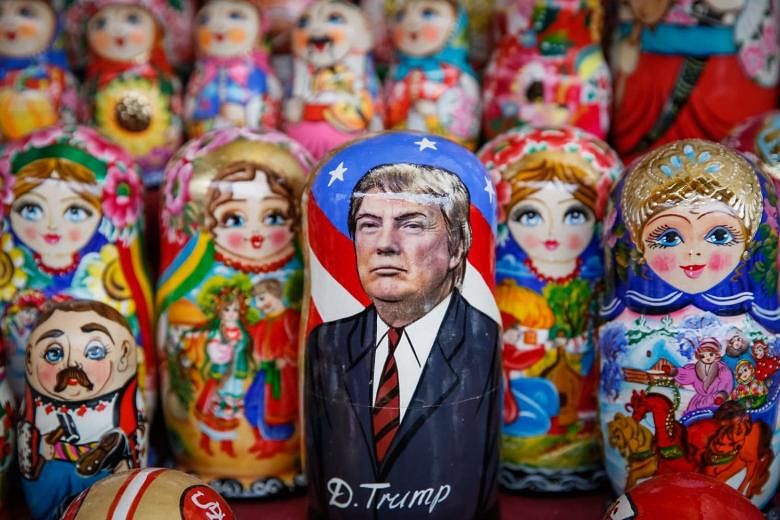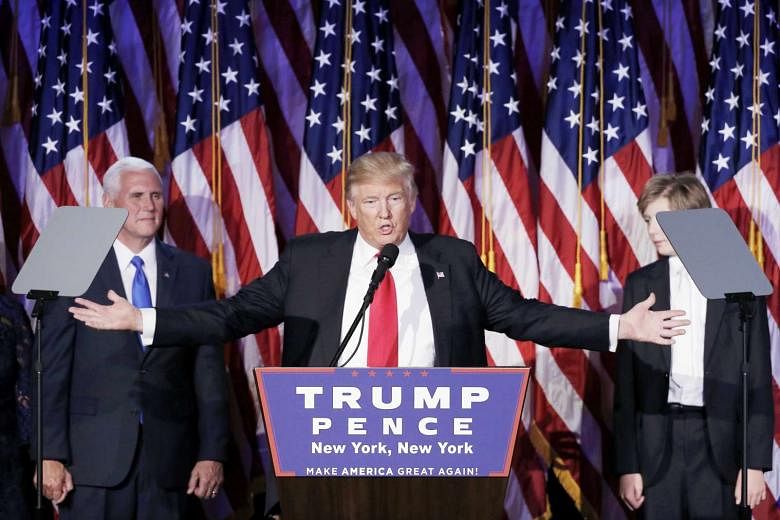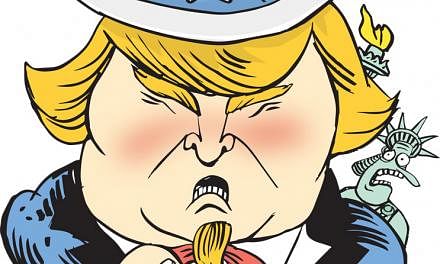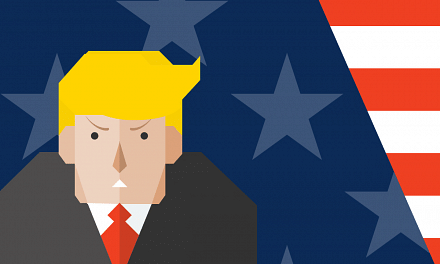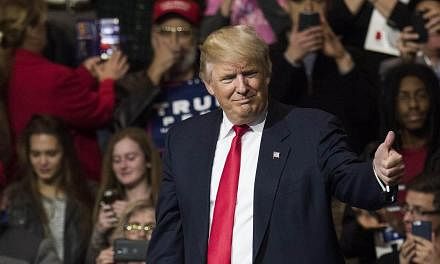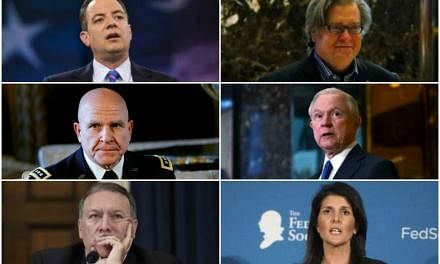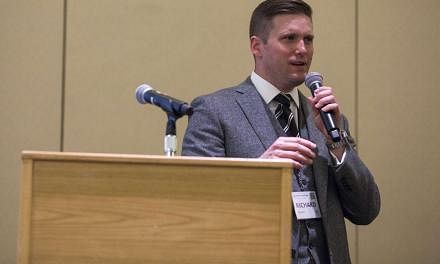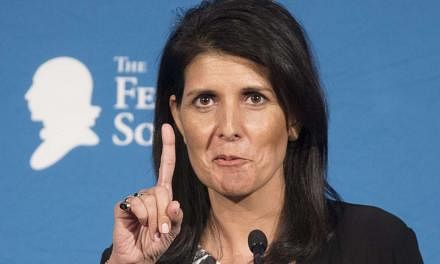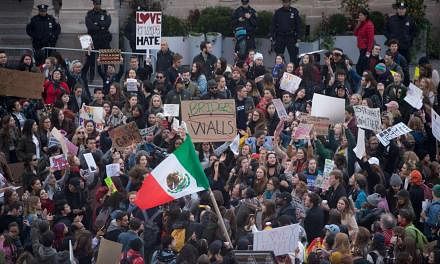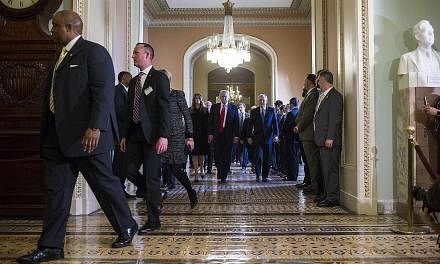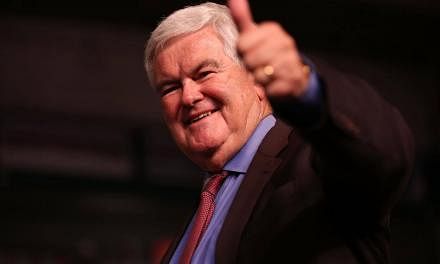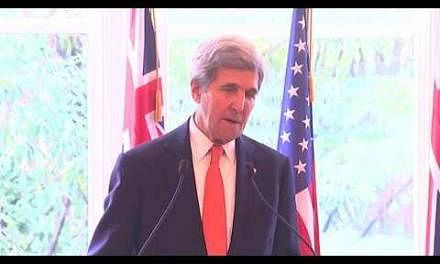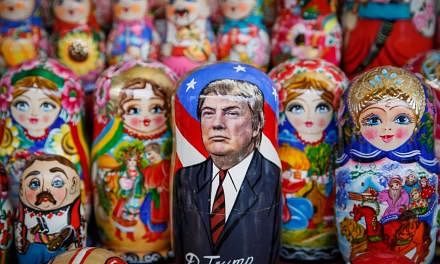Beginning of the end of US strategic leadership in Asia
Many times in the past, US friends and allies in Asia have worried that the United States was stepping back from the role of regional leadership which has been so central to Asia's security and prosperity for so long. After defeat in Vietnam, after victory in the Cold War, after the tragedy of the Sept 11 attacks - each time we worried that the US had lost the will to keep serving as the foundation of international order in this vital region.
Each time, those fears turned out to be groundless. Each time, the US political system forged a new consensus in favour of sustaining US strategic primacy in Asia. Because the gloomy predictions of US withdrawal have proven false, it has become easier to assume that such fears would always prove false in the future as well. It became too easy to imagine that US strategic commitment to Asia was unshakable.
Now, with the election of tycoon Donald Trump as the next president of the United States, we again face fears about its commitment to Asia. This time, they might not prove groundless. What's different this time? Partly the circumstances, and partly the man himself.
The US today faces a tougher challenge to its leadership in Asia than it has ever faced before and Mr Trump seems, as he takes office, supremely unqualified by experience and character to manage that challenge. So are we now, after many false alarms, seeing in Mr Trump's election the end of US leadership in Asia?
Well, there are many uncertainties. First, it is not yet clear how this extraordinary outsider can form an administration and conduct the business of government. Can he find capable people to serve in his Cabinet? Can he work with a Congress in which he will most probably face the bitterest imaginable opposition, not just from Democrats but from many Republicans as well? Can he school himself to abandon the free-wheeling, fact-defying style of his campaign and submit to the relentless discipline that government demands? None of this is clear.
Second, if he can govern at all, will he really try to implement the extraordinary jumble of promises and threats he has made over the long election campaign? It would be a big mistake to assume he will abandon all of them, but we can hope that he will not go ahead with the worst of them - like encouraging Japan and South Korea to arm themselves with nuclear weapons.
Perhaps the most likely outcome is that the sheer impracticality of so much that he has promised, and the immense difficulties he will face in making government in Washington work, will mean that he ends up doing very little on his own initiative.
But that does not mean that nothing will happen. When British prime minister Harold Macmillan resigned, he was asked what was the biggest challenge he had faced in office. "Events, dear boy, events!" he replied. Mr Trump will find the same. The rest of the world will not wait for him to set the agenda. Both the United States' rivals and friends will be looking for opportunities to test him, and hard choices will soon emerge that as president he simply cannot evade.
And the biggest of those tests may well come in Asia, where China is directly challenging US leadership as it seeks to take a bigger place in a new regional order. For some years now, Beijing has been deliberately creating situations in the East and South China seas to test Washington's resolve in this contest. Chances are that they will soon engineer another situation to test President Trump's resolve. How will he handle that test when it comes? In broad terms, there are three basic approaches he could take to China's challenge in Asia.
He could push back hard, trying to force China to back off, and reassert US primacy. He could try to negotiate, seeking to de-escalate a crisis with a compromise that concedes some space to China but still preserves a strong US role in Asia. Or he could back off and concede the Western Pacific to China.
Which will Mr Trump choose? His pugnacious, blustering, bullying persona suggests the first option, pushing back hard against Chinese provocations and being quick to resort to force with little thought about the consequences. This is a possibility and, if it becomes reality, we would face a very dangerous situation indeed. But everything we have seen of Mr Trump so far suggests that, like most bullies, he has little stomach for a real fight.
Equally, however, there is no reason to hope that he has the combination of flexibility and resolve needed to negotiate an acceptable and honourable de-escalation from a crisis. He is just not that kind of person.
And that leaves withdrawal. From what we know of Mr Trump, his most likely response to a Chinese challenge somewhere like the South China Sea will be to step back. He has made it plain that he does not automatically identify US interests with those of its traditional allies, nor with the maintenance of the status quo of US leadership in Asia or elsewhere. Why then would he accept the immense costs and risks of a confrontation with China on his allies' behalf?
If so, then we really might be seeing the beginning of the end of US strategic leadership in Asia. Mr Trump's election therefore requires all of us who have come to assume that US leadership would last forever to think again, and to start to consider what kind of order we should try to build in Asia if that assumption proves wrong.
- The writer is a professor of strategic studies at the Australian National University in Canberra.
Global politics: brace for seismic shift

It's done. Mr Donald Trump is now officially on track to become, at least on paper, the most powerful person in the world. That has plenty of people worried, both at home and abroad.
It's no secret that the vast array of challenges awaiting the new president is formidable. By any measure, Mr Trump will be the most unpopular person ever elected US president. Rather than trying to reach out to those Americans who viscerally dislike him, he doubled down on the white, disenfranchised vote that got him the Republican nomination in the first place and rode their support to the White House. For the next four years, Mr Trump will be hounded by people who find his mere presence in the Oval Office anathema to what they believe America stands for. To be fair, Mrs Hillary Clinton would be facing a similarly divided and impassioned electorate, perhaps without a sympathetic Congress backing her.
But the predictable Mrs Clinton would have been a stabilising force on the global stage; Mr Trump is anything but. That has allies on edge - Mr Trump has promised to backtrack on security pledges, openly and fiercely questioned America's membership in Nato, and made trade protectionism the backbone of his campaign pitch to the American people.
Trump's choice on China: confront or cooperate
BEIJING • Mr Donald Trump's shocking victory in the US presidential election has upended all of the certainties that have shaped not only American politics, but also how the world thinks about the United States. Mr Trump must now confront the nitty-gritty of managing America's international relationships, and arguably none is more important for the world than that between the US and China. But it is also the relationship that was put in the most doubt by the tenor of Mr Trump's campaign.
The president-elect could complicate bilateral relations, particularly given that his first year in office will coincide with the Chinese Communist Party's 19th National Congress next autumn. In an ideal world, both Mr Trump and Chinese President Xi Jinping should want to keep US-China relations stable. But this will prove difficult, given not only Mr Trump's Sinophobic rhetoric, but also ongoing disagreements about Chinese territorial claims in the South China Sea and North Korea's nuclear ambitions. Moreover, US-China relations could fall victim to US domestic disputes about global trade, the value of the dollar, and protectionism.
The international order has experienced several shocks in recent years, profoundly changing the global context for US-China relations. Protracted conflicts in Ukraine and Syria hint at a new Cold War between the US and Russia, and the turmoil in those countries, as well as elsewhere, is increasingly disrupting national economies and security regimes.
Trump and the dangers of America First
It is symbolic and poignant that the election of Mr Donald Trump was confirmed on the morning of Nov 9, 27 years to the day after the fall of the Berlin Wall.
That was a moment of triumph for United States leadership - and ushered in a period of optimism and expansion for liberal and democratic ideas around the world. That era has been definitively ended by Mr Trump's victory.
The electoral triumph of a race-baiting demagogue represents a profound blow to the prestige of US democracy - and thus to the cause of democracy around the world, which America has championed, on and off, since 1945.
Trump can be a good president. Here's how

I am one of millions of Republicans who voted for Mrs Hillary Clinton because much of what I heard Mr Donald J. Trump say on the campaign trail was nonsensical as well as hurtful to many Americans. But I take some comfort in thinking, while he will have to overcome many hurdles to be a good president, he can avoid being a bad president for two reasons.
First, he would not have got this far - he is the first non-politician to be elected president since Dwight Eisenhower - if he were lacking in intelligence.
Second, he very likely knows what the rest of us know: Most of the things he promised to do in order to get elected make no sense. And for that reason alone he may not do them. There is also the fact that even a Republican Congress may very well resist his policies, by, for instance, refusing to fund construction of the proposed wall bordering Mexico.
What liberal elites have failed to see
In his victory speech early on Wednesday, Mr Donald Trump paid homage to "the forgotten men and women of our country", vowing that they "will be forgotten no longer".
This essential political idea - that a vast segment of the US' white citizens has been overlooked or looked down upon - has driven every major realignment in American politics since the New Deal.
In 1932, at the darkest moment of the Great Depression, Franklin Roosevelt evoked the "forgotten man" as a reason to rebuild the economy from the "bottom up".
